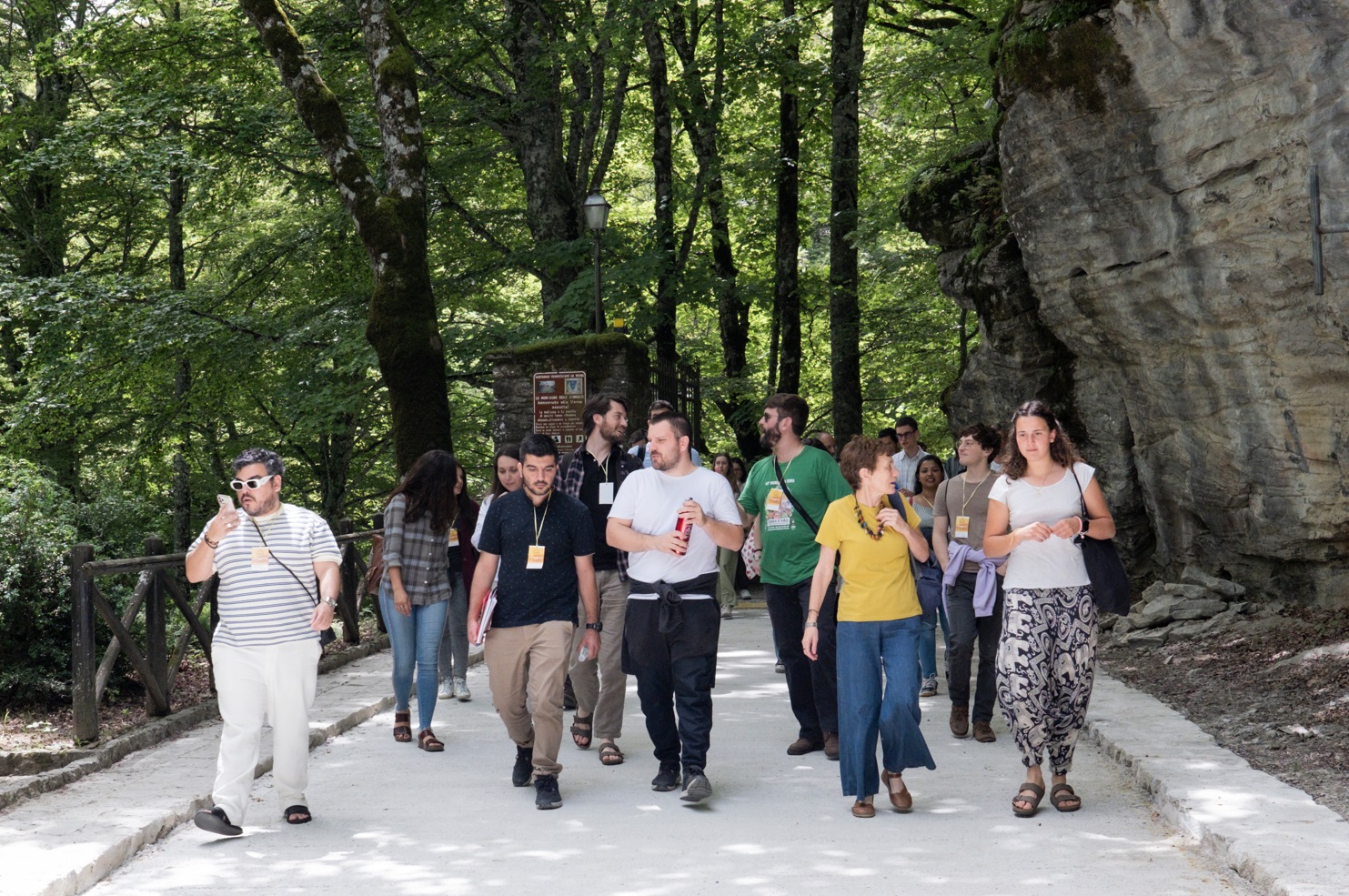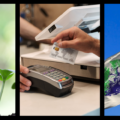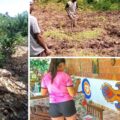
Workshop
The Economy of Francesco, the second international Summer School
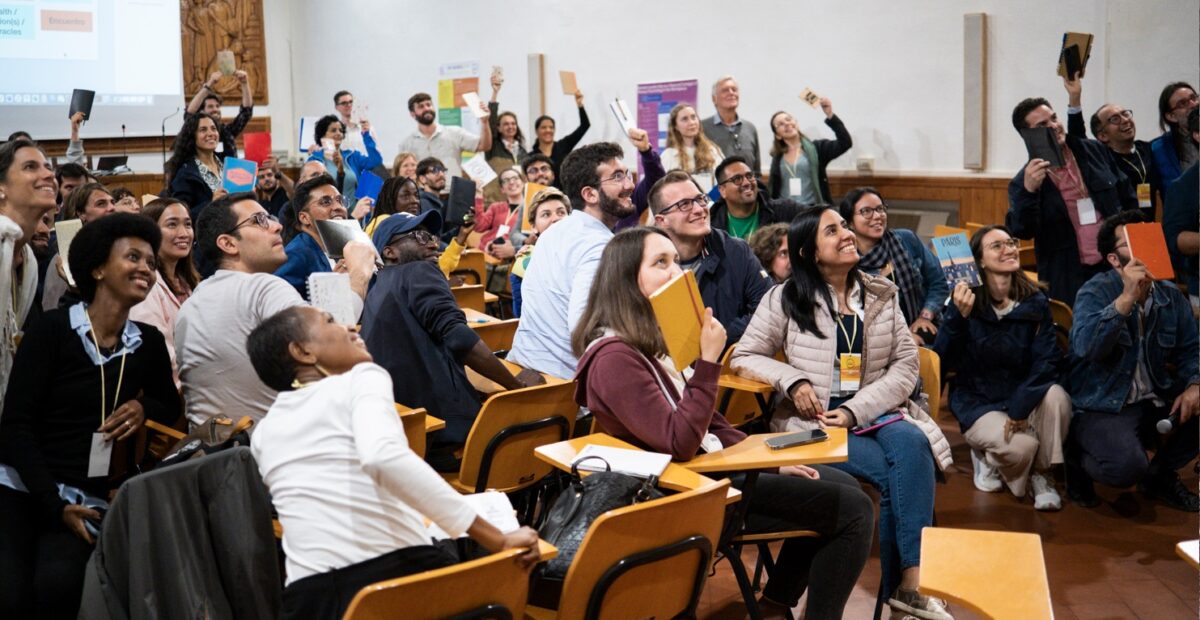
Exploring narrative, social and spiritual capital as pathways to fraternity; an international summer school for 80 young people in La Verna (Italy), symbolic stronghold of Franciscan spirituality.
Five days in the company of Saint Francis; come and make yourselves at home, we can almost hear him say. But listen carefully! No ordinary 5 days – but days dedicated to the ways in which different forms of capital can generate happiness!
From 18-23rd June, at La Verna, in the province of Arrezzo, Italy, this was the second international school to be promoted by The Economy of Francesco. It’s title: In search of spiritual, social and narrative capital: going beyond capitalism. 80 young people from 32 different countries took part.
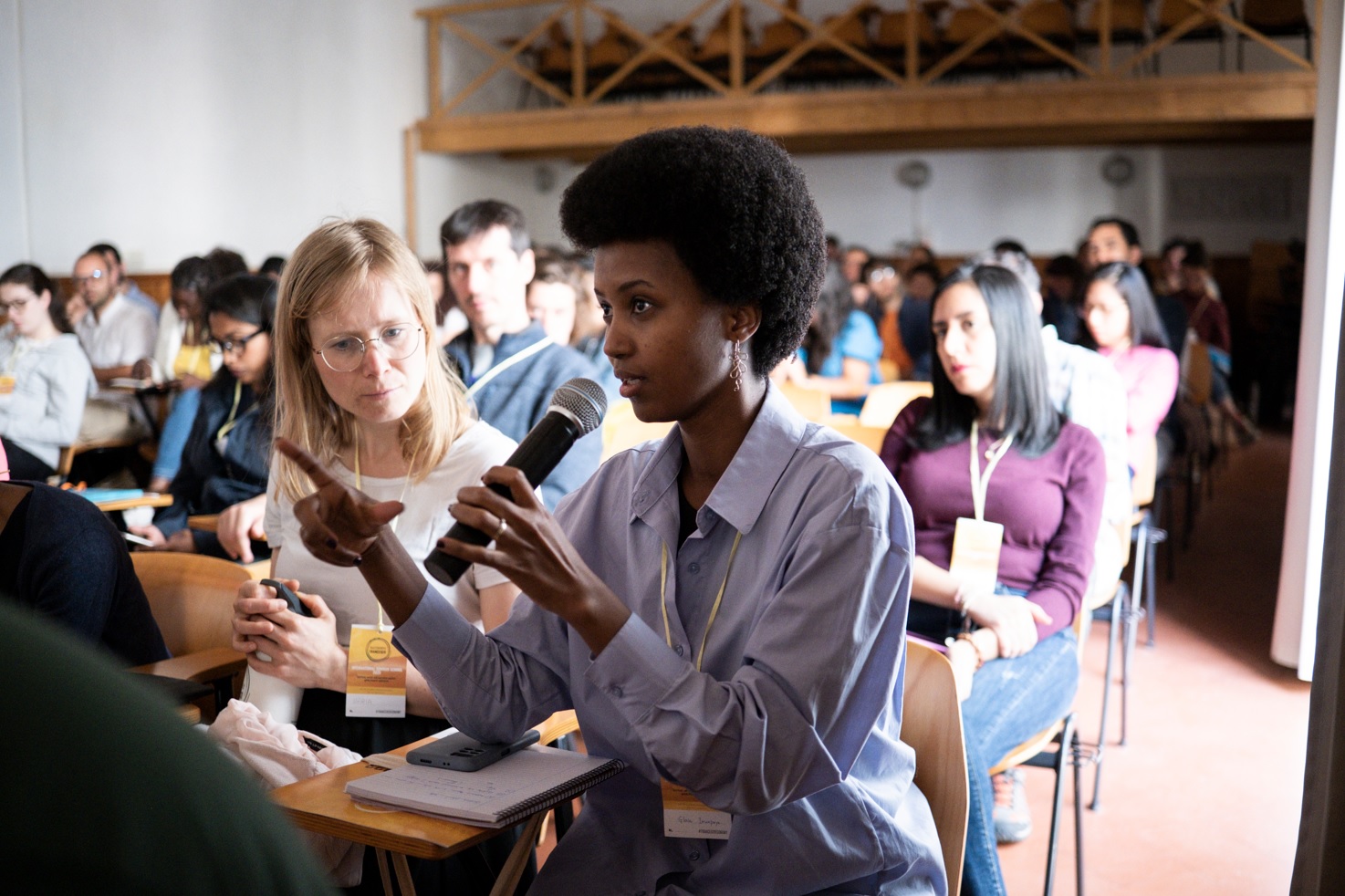
The seed was planted 9 months ago, when Pope Francis addressed the young participants, of the Economy of Francesco, on 24th September 2022. His message was clear; no half-measures. Having listened to their stories and experiences, he mapped out the guidelines of economic action, in a prophetic, far-reaching message “Human beings, created in the image and likeness of God, before being seekers of material goods are seekers of meaning. All of us seek meaning. This is why the first capital of every society is spiritual capital, because it is that which gives us the reason to get up every morning and go to work; it generates the joy of living, which is needed in economics too!”
How to apply the joy of living to the world of economics, which can often appear mundane, pages of figures or dusty papers, is certainly a challenge. Yet, as we know, within every economic system and behind every financial policy, we can discover the hidden connections to social development and peaceful co-existence between peoples, capable of generating happiness.
Taking this as their starting point, the young participants worked alongside economists, researchers, entrepreneurs, change-makers, seeking to deepen their understanding of the reasons why spiritual and narrative capital, belonging to the past, are gaining importance for the wellbeing of our times. “When we have access to these forms of capital, people are better ‘equipped’ to face life’s adversities, they are more resilient and able to flourish because they are able to build on the experience of previous generations, be inspired by their choices and feel themselves in ‘good company’”, the organisers tell us.
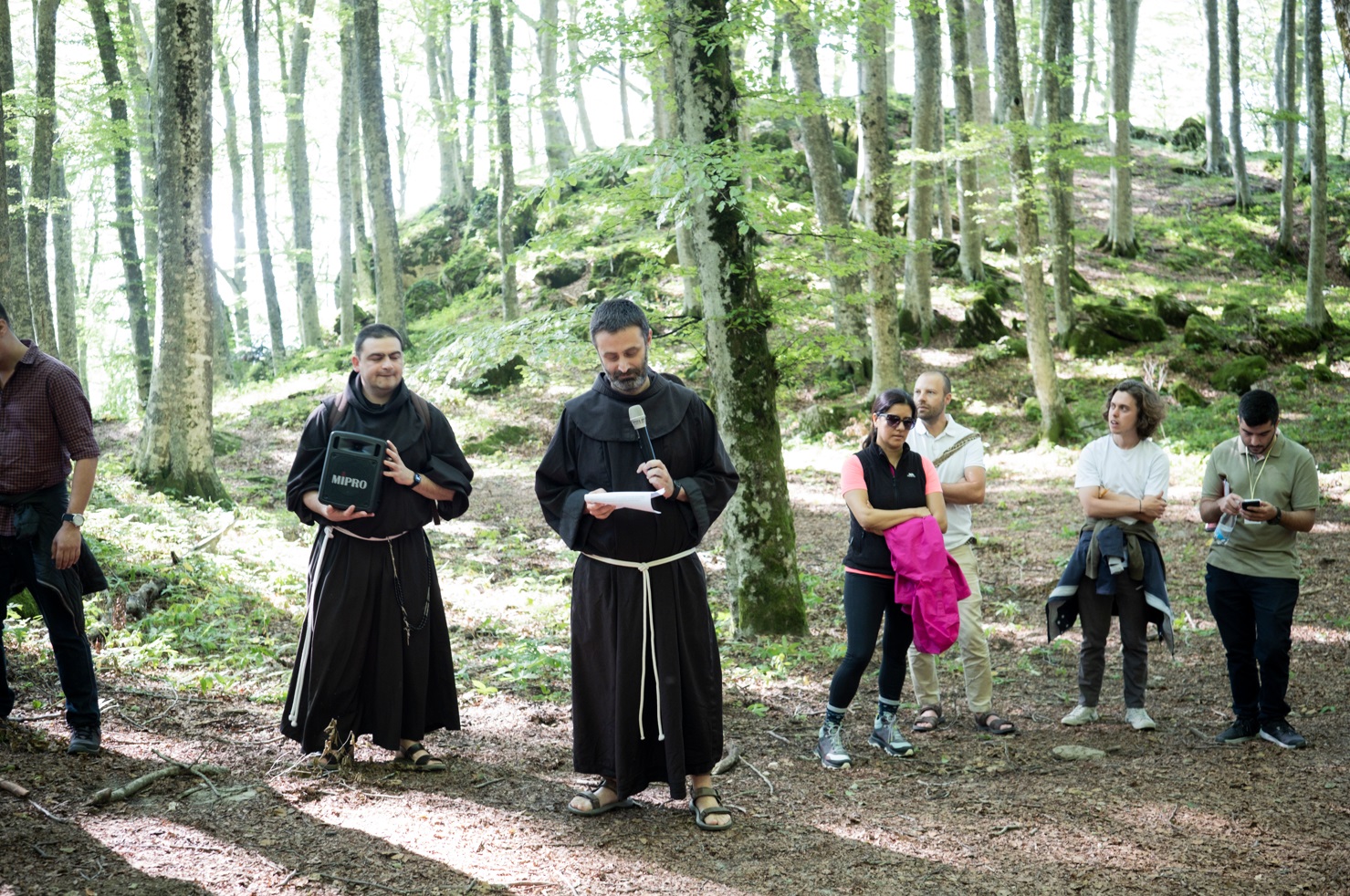
We are referring to forms of capital that social scientists rarely devote attention to, forms which are dying out, due to the rise in individualism and secularism within society, with its negative effects on sustainable social-economic models. During the summer school, participants examined these two concepts of capital and their role in society, in which a sense of community is the key element which enables relationships to grow, and ‘secure’ these forms of capital.
Throughout the five days, a pathway emerged, which responds to the needs of young people, whose academic research leads them to strongly question capitalism and grasp the importance of issues such as injustice, inequality, poverty and the environment.
The stories of some of the participants illustrate this: Ivanna, from the Ukraine, class 1995, graduated in theology. After a period of study in Italy, during which war broke out in her country, she returned home to work with Caritas Ukraine, at the service of those most in need, hoping that, once the war is over, she will be able to pursue a research doctorate in civil economics. Erika, on the other hand, comes from the southern region of Chiapas, south-east Mexico. She is a corporate engineer, working closely with indigenous communities, whilst studying a Masters in social and solidarity economy. Erika believes in the Economy of Francesco: it’s a just economy, which is fair and in harmony with our common home. Another Summer School’s student is Emanuel, who has a degree in economics at Bocconi University and is a research assistant at Harvard Business School in Boston, involved in econometrics, migratory and financial fluctuations.
They, like others, are certain that weaving together different concepts of capital and being faithful to the pact between generations, is the best route to take, not only for the well-being of society, but for paving the way to fraternity within our societies.
[1] Cfr Papa Francesco, to The Economy of Francesco’s youth, Assisi, 24th Septembre 2022: https://www.vatican.va/content/francesco/it/speeches/2022/september/documents/20220924-visita-assisi.html
